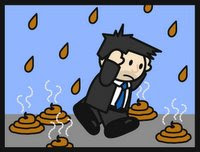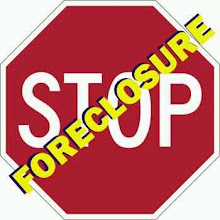By Jason Hahn
Feb 9th 2010 @ 9:00AM
What do the Indianapolis Colts and the Chicago housing market have in common?
They'll both have to wait at least another year for redemption. But bad news for Chicago's housing market - it may have to wait even longer than the Super Bowl losers.
According to John Burns Real Estate Consulting, an Irvine, Calif.-based company that focuses on home building industry decisions, Chicago-area existing-home sales will rise in 2010 and will reach 95,000 units in 2013. Though encouraging, this falls well below the watermark of 146,082 homes sold in 2005, the zenith of the housing boom.
This is pretty glum news for the Chicago area, which has reaped plenty of rewards from the housing bubble, in the form of "jobs, wealth and consumer spending," according to Crain's. Although the $8,000 tax credit for qualified first-time home buyers has helped, it's scheduled to end in April. Additionally, unemployment in Chicago (which the U.S. Bureau of Labor Statistics pegged at 10.6 percent in December) has acted as a wet blanket on demand, and with tight credit likely to correct the still-relatively-high home-ownership rate, it's clear that there are many reasons to be bearish about the Chicago-area housing market.
The Department of Commerce's Census Bureau released its latest vacancy rates last week, which shows that the national homeowner housing vacancy rate was 2.7 percent, up slightly from 2.6 percent in the prior quarter.
From 1996 through the middle of 2005, the homeowner vacancy rate was usually between 1.6 percent to 1.7 percent.
The homeowner vacancy rate in the Chicago area was 3.1 percent in the fourth quarter, up from 2.5 percent in the third quarter, but below the 3.8 percent in the first quarter.
Chicago's home-ownership rate held steady at 69.0 percent in the fourth quarter, down slightly from 69.3 percent in the third quarter. The national home-ownership rate was 67.2 percent.
The home-ownership rate, which remains well above historic levels, is "likely to fall as fewer people qualify for mortgages," according to Alby Gallun, a reporter for Crain's.
"A lot of growth in the middle of the last decade in the Chicago area was tied to the housing industry, like it was in a lot of other places in the country," Gallun said. "Obviously, the industry has shrunk and it's not going to start growing in a meaningful way for a while, so a lot of those jobs just aren't going to come back."
Nevertheless, the second half of 2009 was strong for the Chicago housing market, according to the RE/MAX Northern Illinois real estate network. According to recent data, the company notes that 41,376 home sales closed in the last six months of 2009, up 23 percent from the 33,635 sales in the same period in 2008. For the full year, overall sales of attached and detached homes increased 1.5 percent in 2009 compared to 2008.
With unemployment expected to peak at 11.5 percent, a continuing flow of foreclosures (one out of every 199 housing units in the Chicago area received a foreclosure filing in December, according to Irvine, Calif.-based RealtyTrac) and the prevalence of underwater mortgages, the city of Chicago might have more hope of a turnaround by the Bears than its housing market in the next few years.
Wednesday, February 10, 2010
Subscribe to:
Post Comments (Atom)












No comments:
Post a Comment